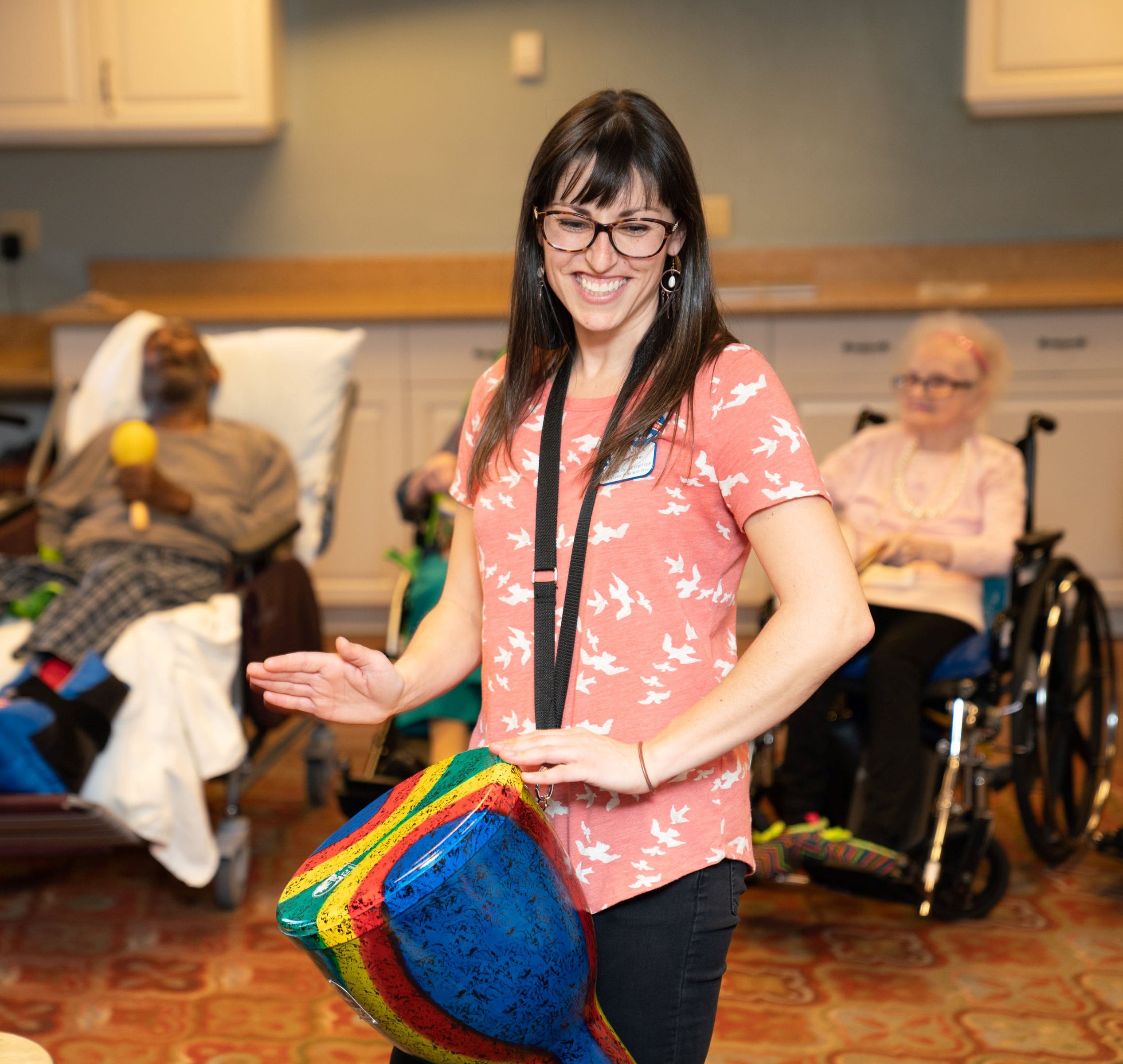LYNN — Life Care Center for the North Shore takes the idea of music being the soundtrack of your youth to an entirely different level.
That’s thanks to Sarah Blacker, a music therapist and Berklee College of Music graduate. Blacker directs the therapy program at Life Care, where she says that patients of all ages and with all sorts of cognitive issues find a strong connection with the music.
“We (the activities department at Life Care) want people to be their whole, healthy selves,” said Blacker. “Music is a way that lights up every part of your brain, and brings you back to a time when you were younger and healthier.”
Life Care, a nursing home in East Lynn, is home to more than 120 patients. They have a variety of physical and cognitive issues, but one of the things that unites them is music.
“Music has a place for everyone,” said Blacker, of Salem. “Even people who don’t participate in the other activities, you find them tapping their toes, or being more attentive, and becoming more aware of what’s going on — much more than a lot of the other intervention things we have.”
Music makes people happy, she says, and that serves a vital purpose when dealing with people with various physical and cognitive limitations.
“You can hear it, and when you focus on it, it can almost make you forget the aches and pains for a while and just enjoy it.”
Also, she said, “it caters to all the senses. It activates the long-term memory, which tends to stay intact with people who have dementia.
“You hear an upbeat song, not only do you hear it, but your body viscerally responds. Your heart rate changes. Some of the neurotransmitters get sent to the rest of your body, and you feel pleasure. It just tends to be something everyone can be a part of.”
Blacker says her approach to music therapy is holistic, person-centered, and diverse. The staff offers one-on-one sessions for patients who cannot get out of bed, or who prefer to stay in bed, or in their rooms, or who are in end-of-life stage.
Her sessions take place three mornings a week, and two afternoons, and include sing-alongs and karaoke.
“The residents here are always asking for music, and offer increased socializing, communicating, and positive emotional responses during and following each musical experience,” she said. “When the music starts, they begin tapping their toes, clapping their hands, singing along, and even offering spontaneous hoots and hollers. I tend to shape my sessions around what’s happening in the moment, and I always aim to promote positive experiences for our residents, which can last for the rest of their day.”
Blacker, a board-certified music therapist, originally wanted to attend Berklee as a singer/songwriter, but on her tour of the school, her guide was a music therapy major, and she liked the idea of it so much she changed majors.
“Initially, I wanted to work with children,” she said. “This kind of fell in my lap. One of the programs I was involved in was geriatric. After working in psych hospitals, I found myself looking for a different experience.”
Now, she’s hooked.
“Often, people can sing better than they can speak, and when they have a beat to respond to, their speech becomes clearer. It’s kind of amazing what happens with long-term memory. Your healthier times are restored for the moment.”

